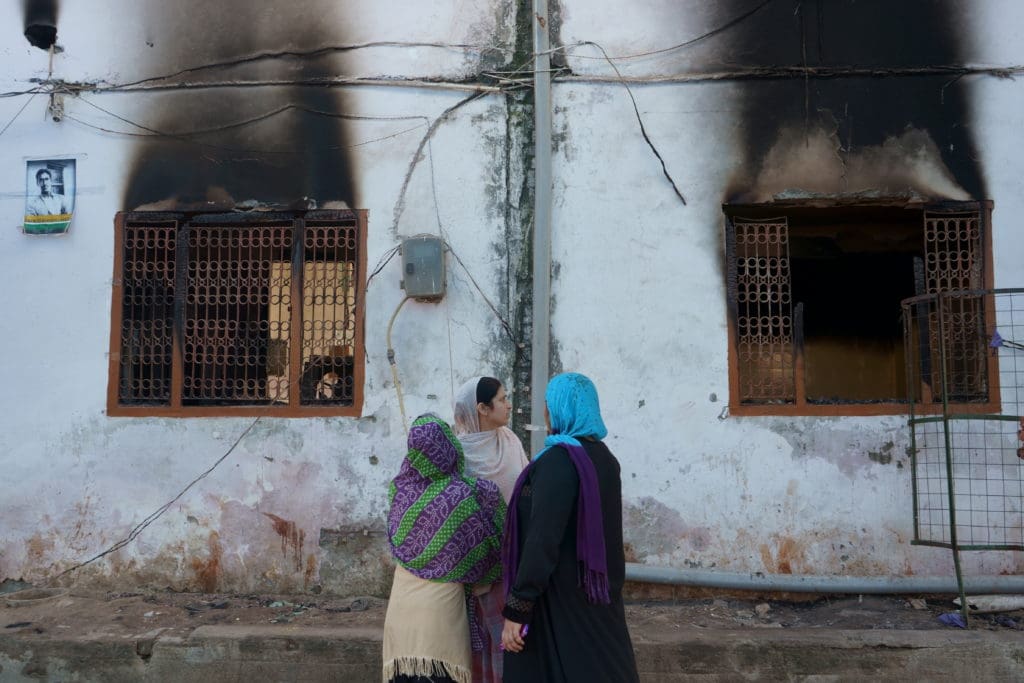
Quratulain Rehbar was on a public bus in northern India earlier this month when a friend alerted her that her picture had appeared on an app, where she was being advertised as for sale.
At first she was numb, she said, but gradually the hurt set in.
“It took me at least two to three hours to process,” she told NBC News in a phone call Jan. 5.
Rehbar, a 27-year-old journalist, is one of about 100 lawyers, activists and other prominent Muslim women in India whose photos appeared on the app, called Bulli Bai, without their consent. The app, whose name is a derogatory Hindi phrase for Muslim women, encouraged users to bid on the women in a fake auction.
The app was swiftly taken down, and Rehbar said she deleted her Instagram account and removed her email from Twitter after she found out that her picture had been included. But for many women, the damage had already been done. Rehbar said although she received countless messages of support, there were also unwelcome messages from a number of men.
The intent “was to sexually harass, disgrace, humiliate and hate on women for speaking out against the government,” said Rehbar, who is from Kashmir, a Muslim-majority region that is the subject of a territorial dispute between India and neighboring Pakistan.
Online harassment is a growing problem in India, researchers say, with women and girls disproportionately affected. A 2020 study of female politicians on Twitter by Amnesty International India found that Muslim women and women from outside the governing Bharatiya Janata Party (BJP) were greater targets.
The BJP, led by Prime Minister Narendra Modi, advocates Hindu nationalism, which envisions a state whose policies elevate the Hindu faith and culture in defiance of India’s secular constitution. Although tensions between India’s Hindus, who make up about 80 percent of the country’s 1.4 billion people, and Muslims, who make up 14 percent, go back hundreds of years, critics say they have intensified under Modi, who took office in 2014.
While opposition politicians have condemned the app, the Modi government has been silent. The Ministry of Home Affairs, which includes the Cyber and Information Security Division, did not respond to a request for comment.
The auction app was not the first of its kind. In July, a similar app was set up under the name Sulli Deals, which is also a derogatory term for Muslim women used by right-wing Hindu nationalists.
It is unclear whether the two apps are linked, but the first one also put prominent Muslim women up for “auction” using photos lifted from their social media profiles. The apps were seen as intended to humiliate the women who appeared on them rather than facilitate any actual sale.
Both apps were created on GitHub, an American coding platform owned by Microsoft and used by developers to build and host software. In a statement Jan. 5, the company said it had “longstanding policies against content and conduct involving harassment, discrimination, and inciting violence.”
It added it had “suspended a user account following the investigation of reports of such activity, all of which violate our policies.”
Rehbar said she had reported on the first app as a journalist, only to find herself targeted by its successor.
Others, like Fatima Zohra Khan, a lawyer and vocal critic of Modi’s right-wing Bharatiya Janata Party, have been targeted by both sites. Khan, 26, said she wasn’t surprised that a second app had appeared, since the first one spurred little legal action.
“I don’t trust the establishment to give us justice,” Khan said, adding that she had filed a complaint about Bulli Bai with the cybercrime unit of the Mumbai police.
Rashmi Karandikar, the deputy commissioner of that unit, said three people — Shweta Singh, 18; Mayank Rawat, 21; and Vishal Kumar, also 21 — had been arrested for questioning in connection with the app.
This story first appeared on nbcnews.com





